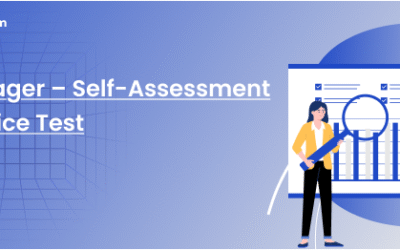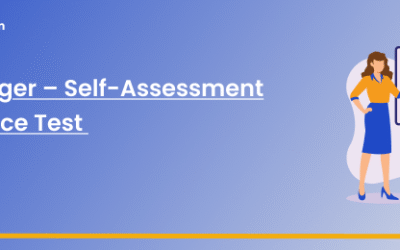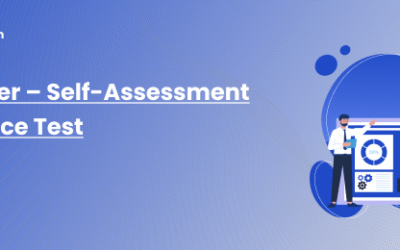What is Disease Management
Disease management is a crucial aspect of healthcare that aims to improve the quality of life for individuals living with chronic conditions. By implementing a comprehensive and proactive approach, disease management focuses on preventing complications, minimizing symptoms, and optimizing overall health outcomes. Whether it’s diabetes, cardiovascular diseases, or respiratory conditions, disease management empowers patients to take control of their health and navigate their condition effectively.
Effective disease management involves a multidisciplinary team approach that includes healthcare professionals, patients, and their families. It combines education, lifestyle modifications, medication adherence, and regular monitoring to ensure that patients receive the best care possible. By providing ongoing support and personalized care plans, disease management helps individuals better understand their condition, manage symptoms, and reduce the risk of hospitalization.
By incorporating the latest advancements in medical technology and evidence-based practices, disease management programs strive to enhance patient satisfaction and promote positive health outcomes. With a focus on prevention and patient empowerment, disease management plays a vital role in improving the overall well-being of individuals living with chronic diseases.
So, whether you’re a healthcare professional or an individual seeking more information about disease management, this article will provide valuable insights into this essential healthcare practice.
Understanding Chronic Diseases
Chronic diseases are long-term health conditions that typically require ongoing medical attention or limit activities of daily living. They are characterized by their persistence and the potential for long-term effects on the body. Conditions such as heart disease, stroke, cancer, diabetes, obesity, and arthritis are common examples of chronic diseases that have a significant impact on the global population.
The management of chronic diseases is often complex due to the multifaceted nature of these conditions. They may require various interventions, including medical treatment, lifestyle changes, and psychological support. The burden of chronic diseases is not only felt by the individuals who suffer from them but also by the healthcare system, making effective management strategies a top priority for public health.
Understanding the underlying causes and risk factors of chronic diseases is an essential step in disease management. It involves recognising how genetics, environment, lifestyle choices, and other factors contribute to the development and progression of these conditions. With this knowledge, healthcare providers can better tailor prevention and treatment strategies to individual needs.
The Importance of Disease Management
Disease management is a systematic approach to healthcare that aims to improve the quality of life for patients by managing and preventing the complications associated with chronic diseases. The importance of disease management cannot be understated, as it has the potential to significantly reduce healthcare costs by diminishing the need for expensive medical interventions, such as emergency room visits and hospital admissions.
Moreover, well-designed disease management programs have the power to enhance the effectiveness of healthcare delivery. They provide a framework for coordinating care across different services and professionals, which is particularly beneficial for patients with multiple chronic conditions. This level of coordination ensures that care is not fragmented, which can often lead to inadequate treatment and poor health outcomes.
The proactive nature of disease management also plays a critical role in addressing the growing burden of chronic diseases on a global scale. With the prevalence of chronic conditions on the rise, healthcare systems are increasingly prioritising disease management as a means of improving patient outcomes and maintaining the sustainability of health services.
Key Components of Disease Management Programs
Disease management programs are structured around several key components, each contributing to the overall effectiveness of the approach. Firstly, patient education is fundamental. It equips individuals with the knowledge to understand their condition, the importance of compliance with their treatment plan, and the impact of lifestyle choices on their health.
Secondly, self-management support is provided to help patients develop the skills they need to take an active role in their own care. This includes understanding how to monitor their condition, manage symptoms, and know when to seek medical attention. Self-management is a cornerstone of disease management, as it fosters a sense of autonomy and responsibility in patients.
Thirdly, regular monitoring and feedback are vital. Healthcare providers track the progress of their patients and adjust treatment plans as necessary. This ongoing assessment ensures that any potential issues are identified and addressed promptly, which helps to prevent complications and improve long-term health outcomes.
Benefits of Disease Management
The benefits of disease management are multifaceted and extend to patients, healthcare providers, and the healthcare system as a whole. For patients, disease management can lead to improved health literacy, better quality of life, and reduced incidence of complications associated with their condition. It can also foster a more active role in their own healthcare, contributing to greater self-efficacy and empowerment.
Healthcare providers benefit from disease management programs as they offer structured and evidence-based approaches to care. These programs support clinical decision-making and improve the efficiency of care delivery. Additionally, by reducing the frequency of emergency interventions, providers can focus on preventive care and the management of other health issues.
From a system-wide perspective, disease management can lead to significant cost savings. By averting hospital admissions and reducing the use of expensive medical resources, these programs can alleviate the financial strain on healthcare systems. Moreover, they have the potential to improve population health outcomes, contributing to the overall well-being and productivity of communities.
Disease Management Strategies
Disease management strategies are designed to be patient-centric, catering to the unique needs and circumstances of each individual. One such strategy is the development of personalized care plans based on a comprehensive assessment of the patient’s condition, lifestyle, and preferences. These care plans outline treatment goals, interventions, and self-management tasks tailored to the patient.
Another strategy is the integration of lifestyle interventions, such as dietary changes, physical activity, and stress management. These interventions address the modifiable risk factors that contribute to the progression of chronic diseases. By encouraging patients to adopt healthier lifestyles, disease management programs can significantly reduce the burden of these conditions.
Collaboration among healthcare professionals is also a critical strategy in disease management. By fostering teamwork and communication between different specialties, patients receive a more cohesive and comprehensive care experience. This interdisciplinary approach ensures that all aspects of a patient’s condition are considered and that care is delivered in a coordinated and efficient manner.
Disease Management Techniques
The techniques used in disease management are as varied as the conditions they aim to address. Behavioural change techniques, for example, are employed to help patients modify unhealthy habits and adopt new, healthier behaviours. These may include motivational interviewing, goal setting, and the use of support groups to encourage patients to take an active role in managing their health.
Medication management is another crucial technique. It ensures that patients are taking their medications as prescribed and that they understand the importance of adherence to their treatment regimen. Regular reviews of medication effectiveness and side effects are also important to ensure that the treatment plan remains appropriate over time.
Monitoring and feedback techniques are used to keep track of a patient’s condition and progress. This may involve regular health assessments, the use of wearable devices to monitor vital signs, and digital platforms that allow patients to report symptoms and receive feedback from their healthcare team. These techniques help to identify any issues early and allow for timely interventions.
Disease Management Tools and Technologies
In the digital age, tools and technologies play a pivotal role in the execution of effective disease management programs. Electronic health records (EHRs) are a prime example, providing a comprehensive overview of a patient’s medical history, treatments, and progress notes. EHRs facilitate better communication between healthcare providers and ensure that all relevant information is readily accessible.
Telemedicine has also emerged as a valuable tool, especially in reaching patients in remote or underserved areas. It enables healthcare providers to conduct virtual consultations, offer support, and monitor patients without the need for physical office visits. This not only increases the accessibility of care but also makes it more convenient for patients.
Additionally, mobile health applications and wearable devices have become integral to disease management. These technologies allow patients to track their health metrics, set reminders for medication, and access educational resources. They provide real-time data that can be used to adjust treatment plans and support self-management efforts.
Disease Management in Different Healthcare Settings
Disease management programs must be adaptable to function effectively across various healthcare settings. In primary care, these programs often serve as the first line of defense against the progression of chronic diseases. Primary care providers can implement disease management strategies that are tailored to the needs of their patient population.
In hospital settings, disease management is crucial for ensuring that patients receive coordinated care during their stay and after discharge. Hospitals often have dedicated teams that focus on the transition of care from the hospital to the home or another care facility, which is essential for preventing readmissions and improving recovery outcomes.
Specialized clinics and community health centers also play a role in disease management. These settings provide targeted interventions for specific conditions, such as diabetes or heart disease, and often offer comprehensive programs that include education, lifestyle support, and medication management.
Conclusion: The Future of Disease Management
The future of disease management is promising, with ongoing advancements in medical technology and a growing emphasis on patient-centered care. As we move forward, we can expect to see more personalized approaches to disease management, driven by data analytics and precision medicine. This will likely allow for even more effective management of chronic conditions and better health outcomes.
Moreover, the integration of artificial intelligence and machine learning into disease management tools will enhance the ability of healthcare providers to predict and prevent complications before they occur. These technologies will also support the development of more sophisticated self-management applications, further empowering patients in their own care.
In conclusion, disease management is an evolving field that has already made significant strides in improving the lives of individuals with chronic diseases. As it continues to advance, the potential for even greater improvements in healthcare quality and efficiency is vast. For healthcare professionals and patients alike, the importance of staying informed and engaged in the principles of disease management has never been more critical.




